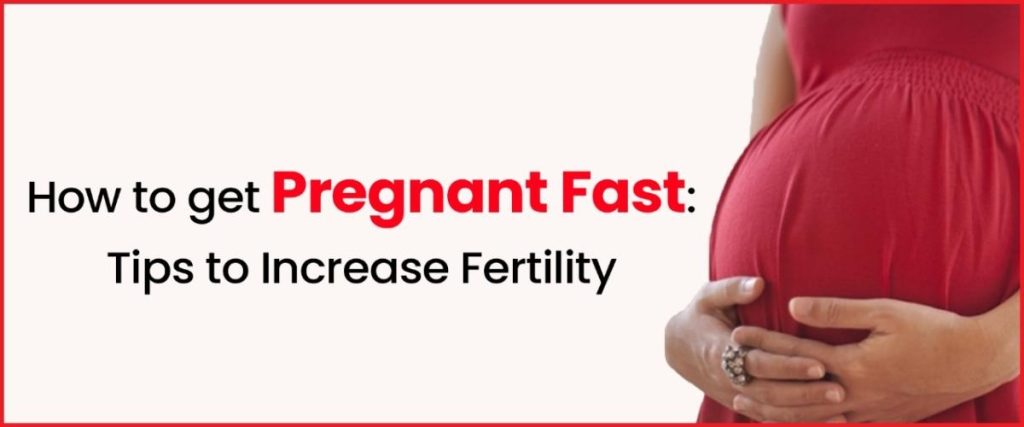Pregnancy is a profound and life-changing experience, and for many couples, the journey begins with the hope of conceiving quickly. While every path to parenthood is unique, understanding the basics of conception and pregnancy can help streamline the process and set the stage for a healthy and fulfilling experience. In this blog, we’ll explore essential information about pregnancy, offer practical tips for those looking to conceive, and address the common question: “How to get pregnant fast?”
Understanding Pregnancy and Conception
Pregnancy starts with conception, which occurs when sperm fertilizes an egg. The fertilized egg then implants itself in the uterus, where it begins to develop into an embryo and eventually a fetus. The process of conception involves several key factors:
- Ovulation: This is when an ovary releases an egg, which then travels through the fallopian tube. Conception is most likely to occur if sperm meets the egg during this window.
- Timing: Knowing the timing of ovulation can significantly increase the chances of conception. Typically, ovulation occurs about midway through the menstrual cycle, but this can vary from person to person.
- Healthy Lifestyle: Both partners’ overall health plays a crucial role in fertility. Maintaining a balanced diet, managing stress, and avoiding harmful substances can support reproductive health.
How to Get Pregnant Fast: Practical Tips
For couples eager to conceive quickly, there are several strategies to enhance fertility and increase the likelihood of pregnancy:
1. Track Your Ovulation
Understanding your ovulation cycle is essential for timing intercourse. You can track ovulation using various methods, including:
- Ovulation Predictor Kits: These tests detect the surge in luteinizing hormone (LH) that occurs before ovulation.
- Basal Body Temperature (BBT): Charting your BBT daily can help identify your ovulation pattern.
- Cervical Mucus Monitoring: Changes in cervical mucus can signal your fertile window.
By timing intercourse around ovulation, you maximize the chances of sperm meeting the egg.
2. Maintain a Healthy Lifestyle
Both partners should focus on adopting a healthy lifestyle to support fertility:
- Balanced Diet: Eat a variety of nutrient-rich foods, including fruits, vegetables, whole grains, and lean proteins.
- Regular Exercise: Engage in moderate physical activity to maintain a healthy weight and reduce stress.
- Avoid Harmful Substances: Steer clear of smoking, excessive alcohol, and recreational drugs, as these can negatively impact fertility.
3. Regular Intercourse
Frequent intercourse, particularly during the fertile window, increases the likelihood of conception. Aim for regular, unprotected intercourse throughout the month, but focus on the days leading up to and including ovulation.
4. Consult a Healthcare Provider
If you’ve been trying to conceive for several months without success, it may be helpful to consult with a healthcare provider. They can provide personalized advice, conduct fertility assessments, and identify any potential issues that may be affecting conception.
5. Consider Prenatal Vitamins
While prenatal vitamins are typically recommended once pregnancy is confirmed, starting them before conception can be beneficial. Prenatal vitamins contain essential nutrients like folic acid, which supports fetal development and can improve reproductive health.
What to Expect During Pregnancy
Once conception occurs and pregnancy begins, it’s important to be aware of the key stages and what to expect:
First Trimester (Weeks 1-12)
The first trimester is a period of rapid development. The embryo forms crucial organs and systems, and many women experience early pregnancy symptoms such as morning sickness, fatigue, and tender breasts. Regular prenatal check-ups are essential for monitoring the health of both mother and baby.
Second Trimester (Weeks 13-26)
Often considered the most comfortable phase, the second trimester is characterized by noticeable fetal growth and development. Symptoms like morning sickness may diminish, and you might begin to feel the baby’s movements. This period is a great time to focus on nutrition and prepare for the upcoming stages.
Third Trimester (Weeks 27-Birth)
In the third trimester, the baby’s growth accelerates, and the body undergoes various changes to prepare for childbirth. You might experience physical discomfort as your due date approaches. It’s important to attend all prenatal appointments and discuss any concerns with your healthcare provider.
Conclusion
Embarking on the journey to pregnancy is an exciting and transformative experience. For those seeking to conceive quickly, understanding ovulation, maintaining a healthy lifestyle, and seeking professional advice can enhance the chances of a successful conception. Remember, while these tips can improve your chances, patience and support are key. Every couple’s journey is unique, and it’s important to focus on your overall well-being and preparation for the beautiful journey of parenthood. If you have any concerns or questions, don’t hesitate to consult with a healthcare provider for personalized guidance and support.


